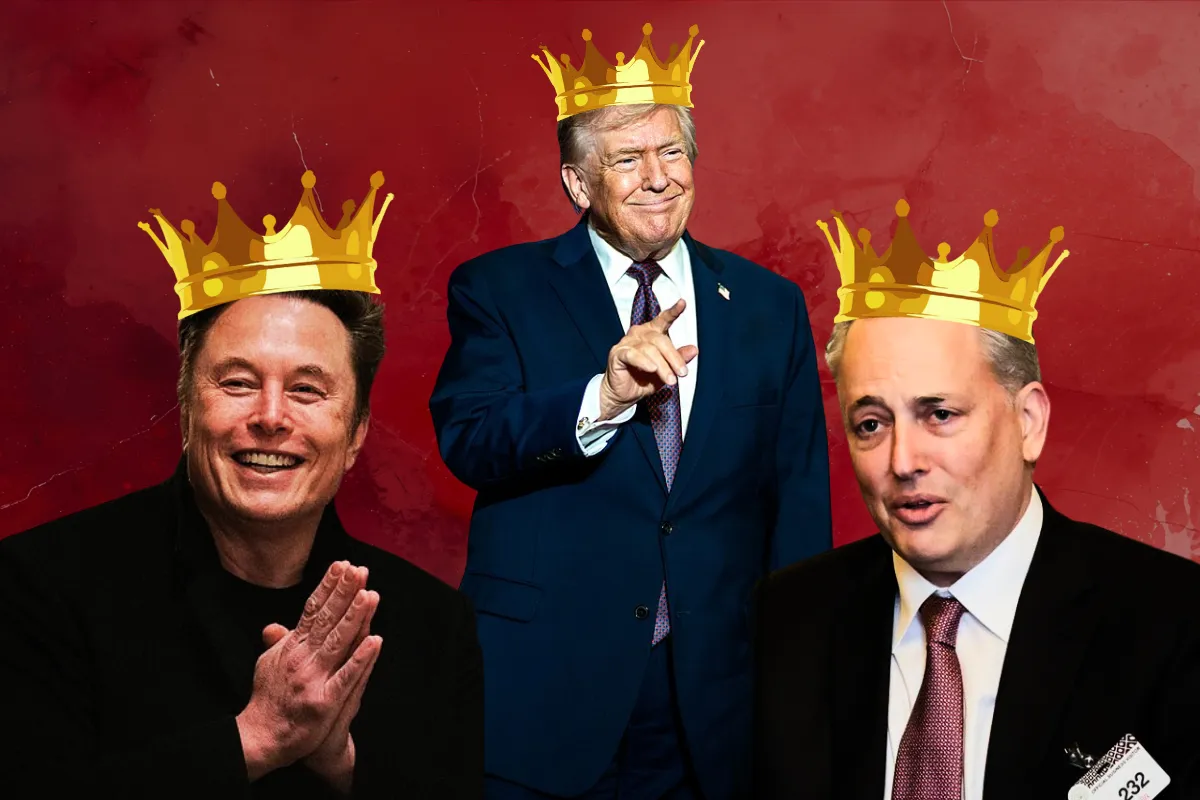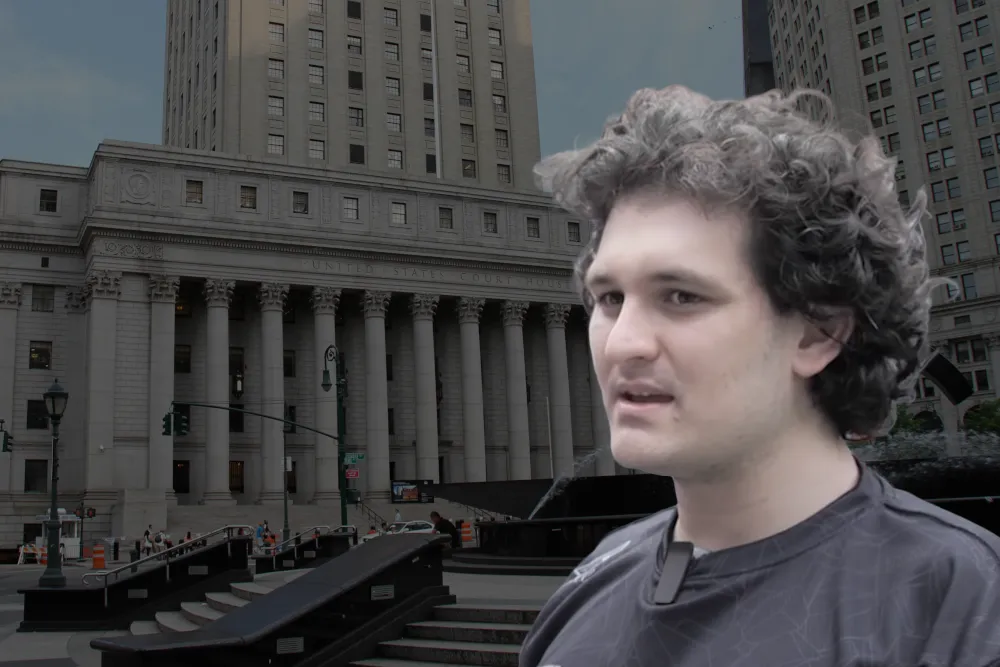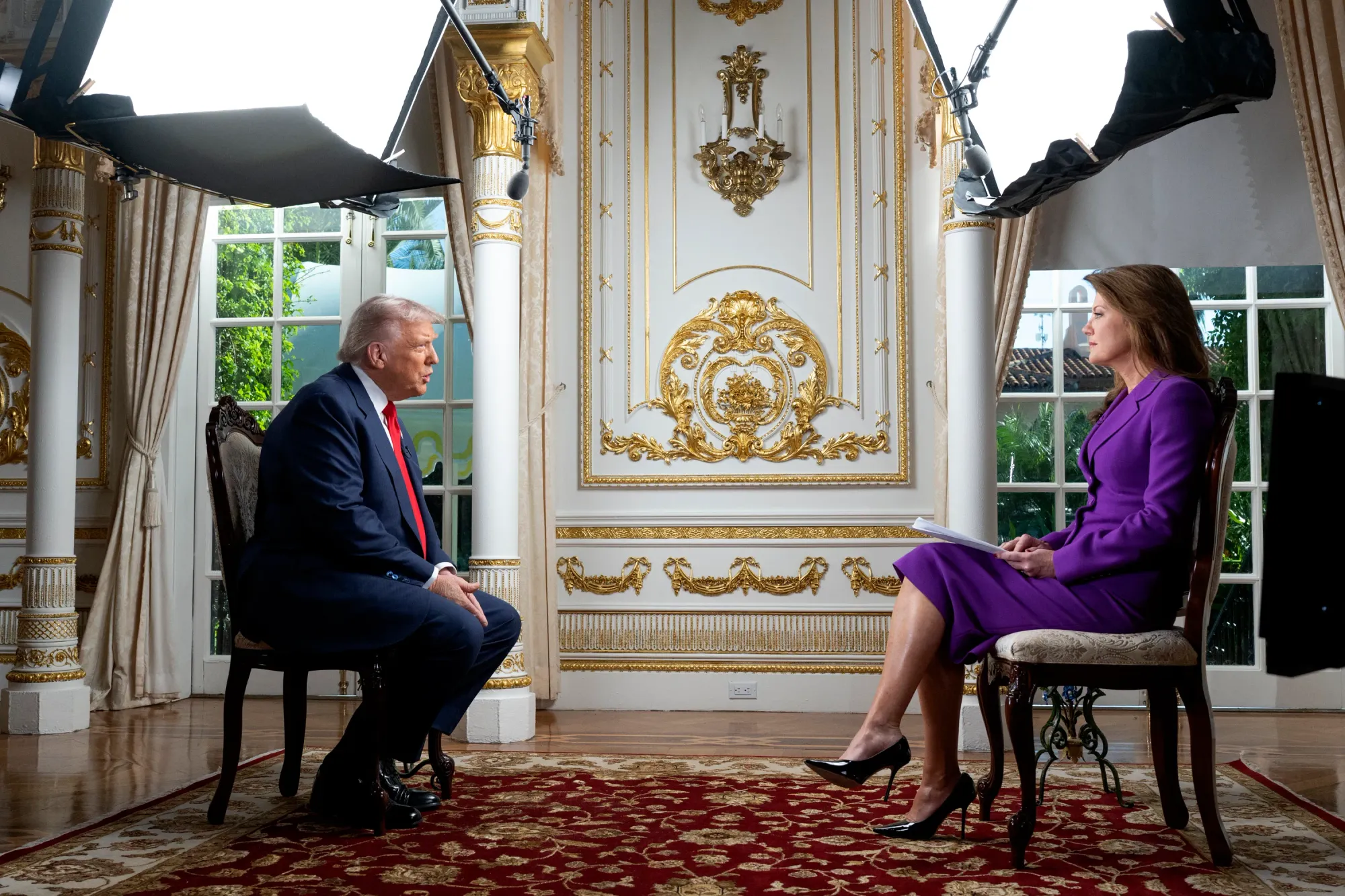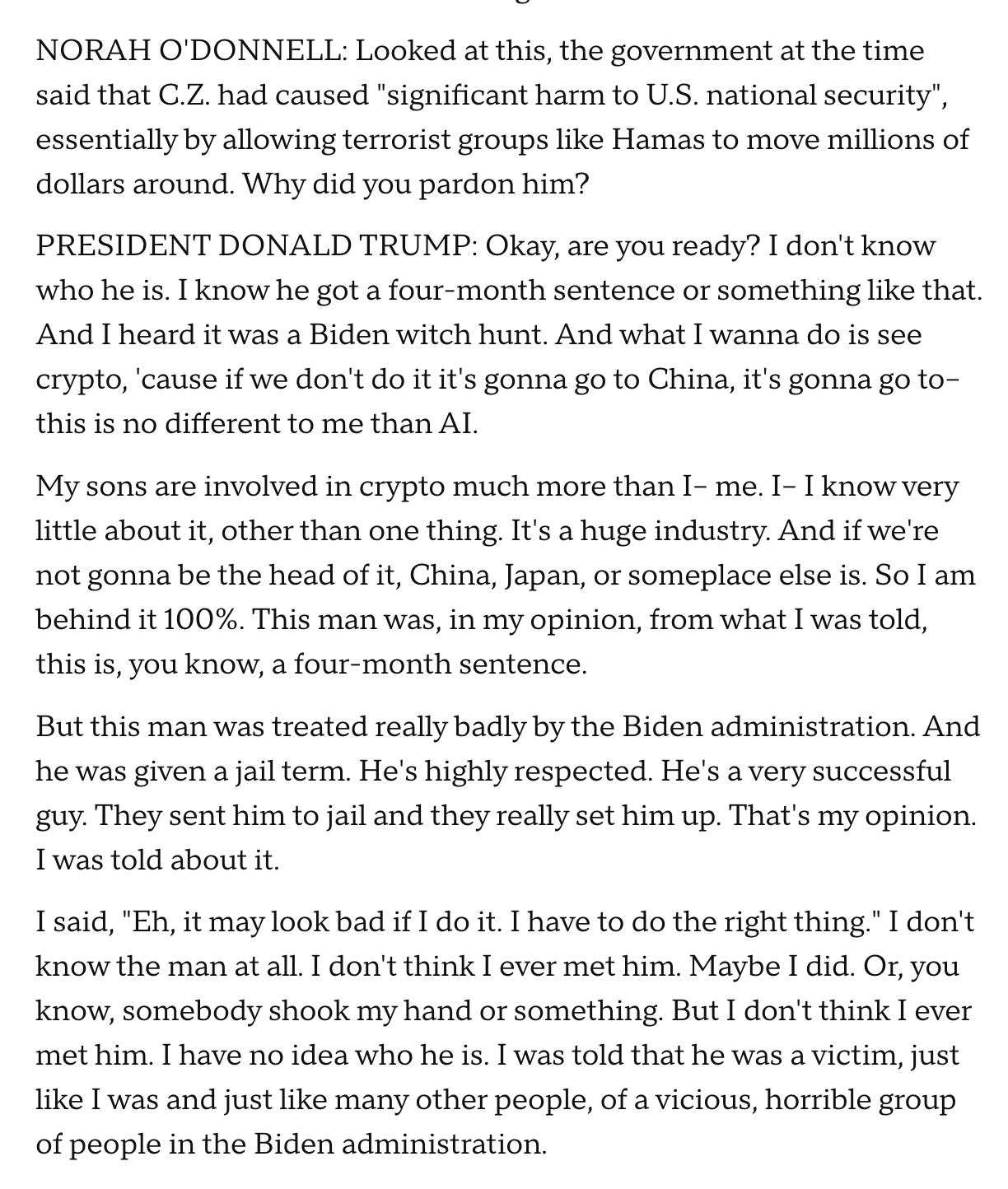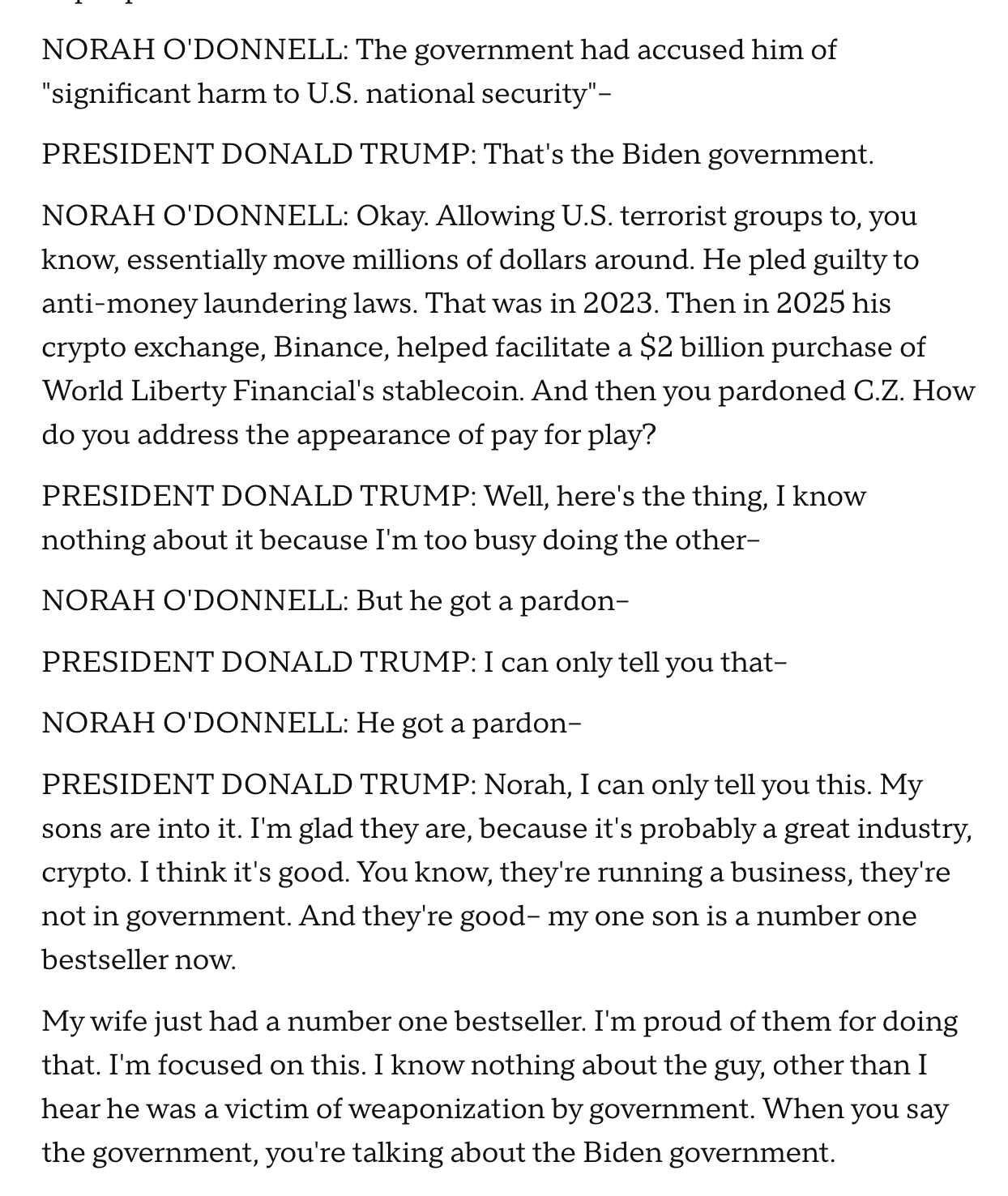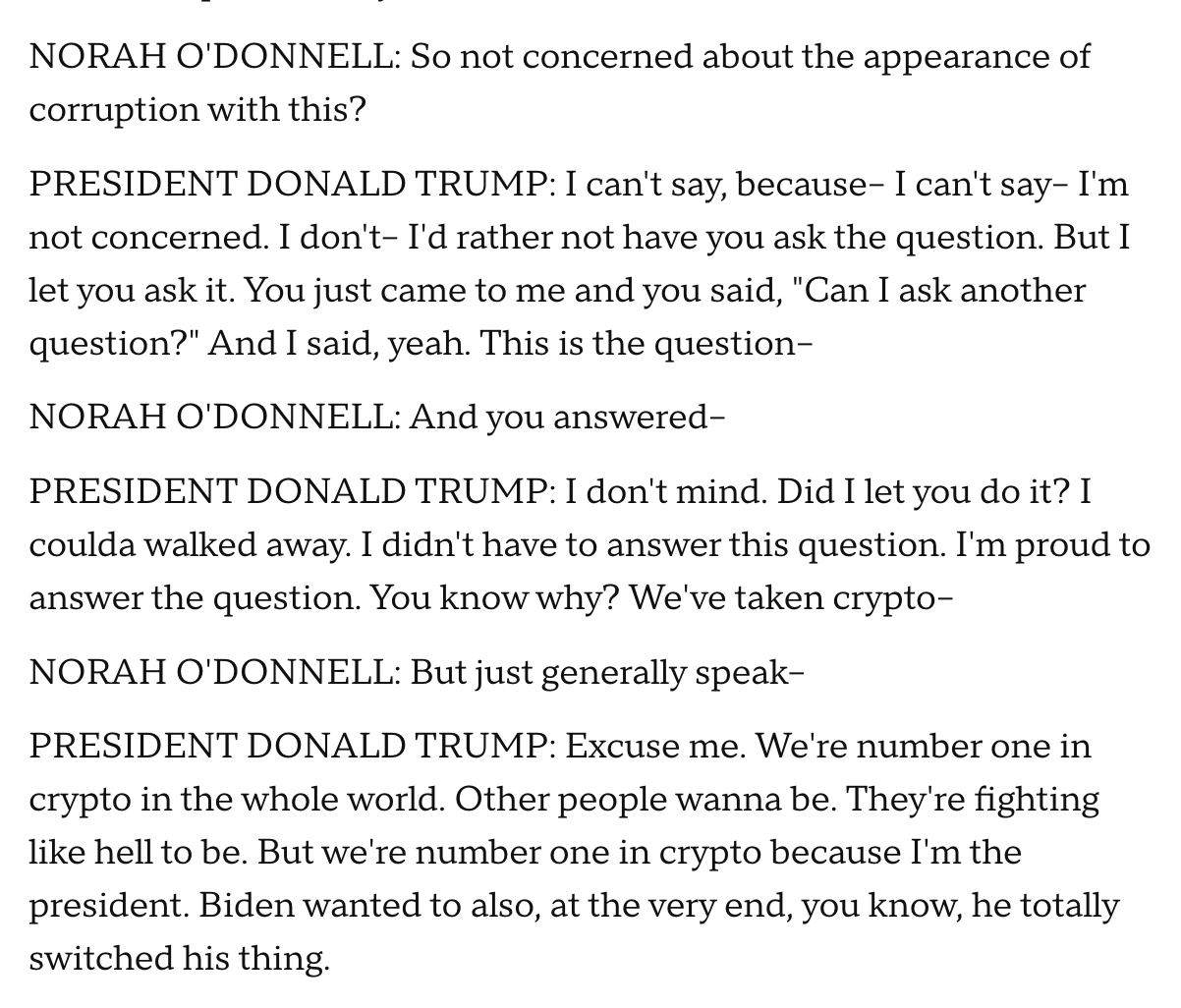Norah O'Donnell in CBS News.
Activity tagged "crypto"
The year of technoligarchy
Issue 98 – The world’s most corrupt crypto startup operation
Digital asset treasury companies are running out of steam
Issue 97 – This is hardship
Issue 96 – Redefining solvency
Trump says he has “no idea” who he just pardoned
The full CBS interview with Trump about the pardon of Binance's Changpeng Zhao is shocking. "Why did you pardon him?" "I have no idea who he is. I was told that he was a victim ... They sent him to jail and they really set him up. That's my opinion. I was told about it."
"I know nothing about it because I'm too busy." He talks about how his sons are in the crypto industry, and how his son and wife published bestselling books. "I'm proud of them for doing that. I'm focused on this."
"[You're] not concerned about the appearance of corruption with this?"
"I'd rather not have you ask the question."
![Cardano founder Charles Hoskinson has also clearly been trying to woo Trump, claiming very shortly after the election that he was “going to be spending quite a bit of time working with lawmakers in Washington DC and quite a bit of time with members of the administration to help foster and facilitate with other key leaders in industry the crypto policy”.6 While he has continued to boast vaguely about meetings with various influential figures, winkingly describing a “VIP dinner” where “diet coke will certainly be on [the menu]”, there’s been little outside confirmation that he’s had much access to the Trump administration.](https://storage.mollywhite.net/micro/ebf999a8f79f352f9173_Screenshot-2026-01-13-at-10.35.28---PM.png)

